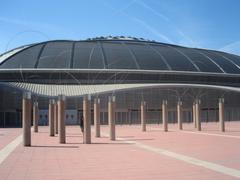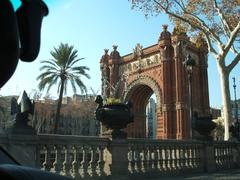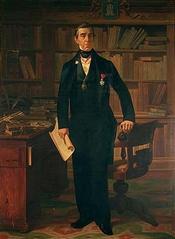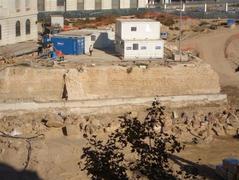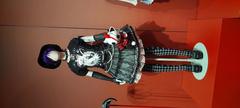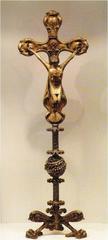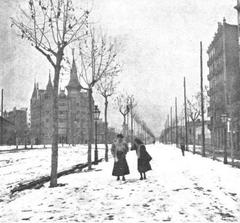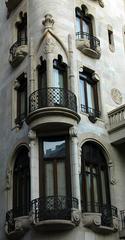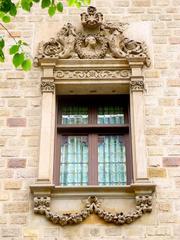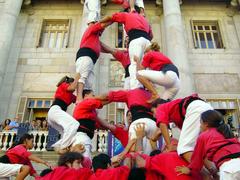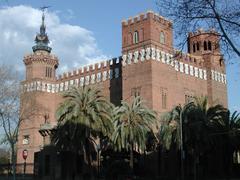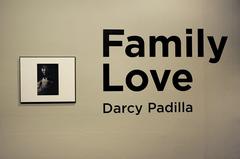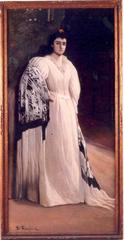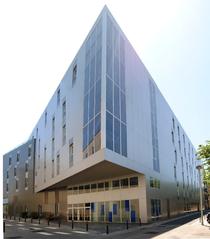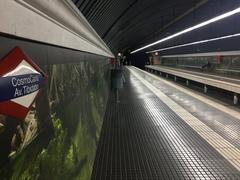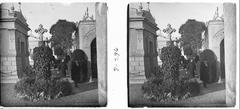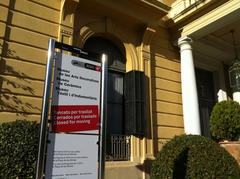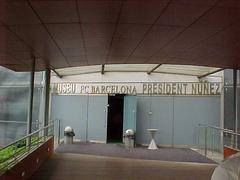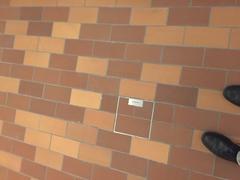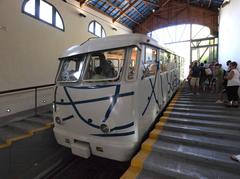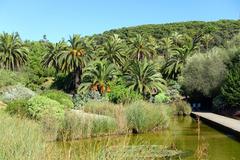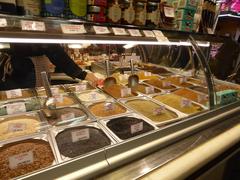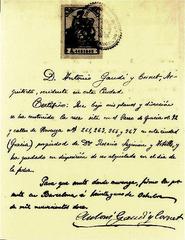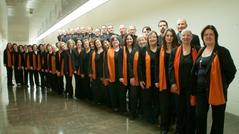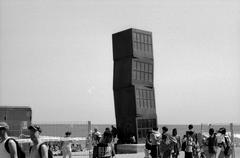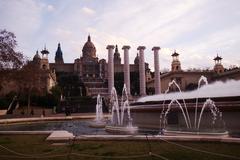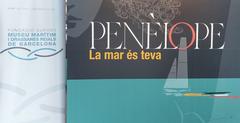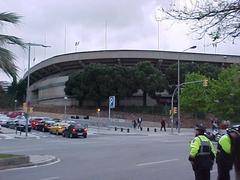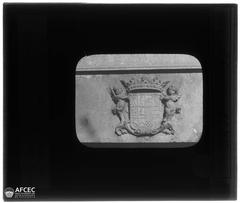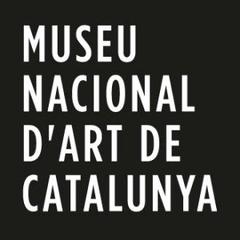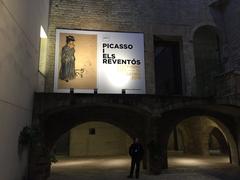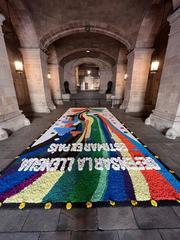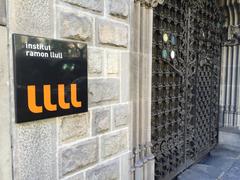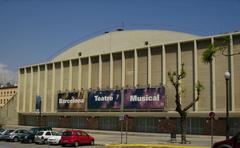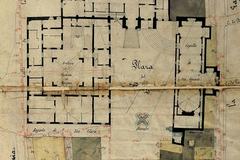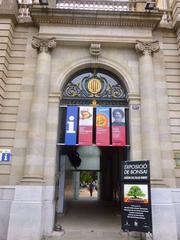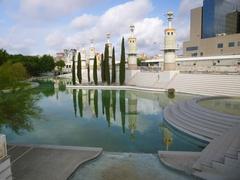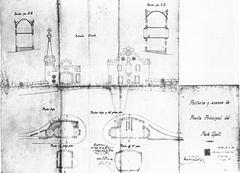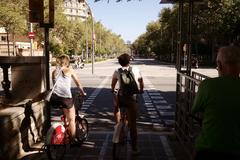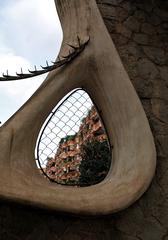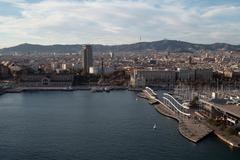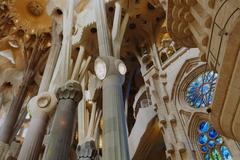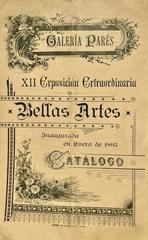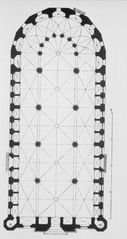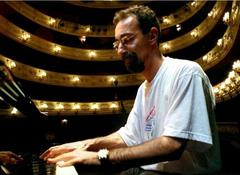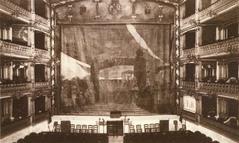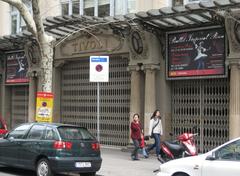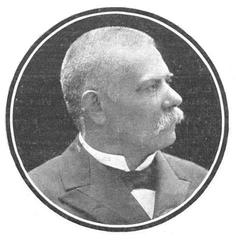
Centre Moral i Cultural del Poblenou: Visiting Hours, Tickets, and Comprehensive Visitor Guide
Date: 03/07/2025
Introduction
Located in the vibrant Poblenou neighborhood of Barcelona, the Centre Moral i Cultural del Poblenou is a cornerstone of Catalan culture, community engagement, and artistic innovation. Since its founding in 1910, the Centre has played a pivotal role in the region’s social and cultural development, offering a diverse array of activities and serving as a living chronicle of Barcelona’s working-class heritage. Today, it continues to welcome both locals and visitors, providing access to theater, music, dance, educational workshops, and community events in a welcoming, inclusive environment. Whether you’re seeking historical insight, artistic performances, or a taste of authentic community life, the Centre Moral i Cultural del Poblenou is a must-visit destination in Sant Martí (Arxiu Històric Poblenou; elcentrepoblenou.cat; guia.barcelona.cat).
Table of Contents
- Historical Overview: Founding to Present
- Facilities and Accessibility
- Cultural and Social Activities
- Visiting Hours and Ticketing
- Tips for Visitors and Nearby Attractions
- Visual Highlights
- Frequently Asked Questions (FAQ)
- Conclusion and Final Tips
- References
Historical Overview: Founding to Present
Founding and Early Years (1910–1930s)
The Centre was established in 1910 as the “Centre Social,” emerging from the need to rebuild community life following the destruction of the Patronat Obrer during the Setmana Tràgica (Tragic Week) of 1909. Its mission was to nurture the moral, educational, and cultural well-being of Poblenou’s working-class residents, and it quickly became a focal point for gatherings, learning, and artistic events (Arxiu Històric Poblenou).
Political Upheaval and War (1930s–1940s)
During the Spanish Civil War and the subsequent Francoist repression, the Centre faced significant challenges, including the temporary loss of its premises. Despite these hardships, a dedicated group of members kept the spirit alive by organizing theater productions and community activities in alternative spaces (Arxiu Històric Poblenou).
Postwar Revival and Cultural Flourishing (1950s–1970s)
The 1950s marked a renaissance for the Centre, with a thriving amateur theater scene, musical events, and the discreet preservation of Catalan language and traditions during the dictatorship. The Centre became renowned for its vibrant cultural programming and community cohesion, serving as a safe space for artistic and social expression (elcentrepoblenou.cat).
Contemporary Role
Today, the Centre is recognized as a model of cultural resilience, inclusivity, and intergenerational engagement. It boasts awards such as the Creu de Sant Jordi and the Medalla d’Or al Mèrit Cívic, reflecting its long-standing contributions to Catalan society (ca.wikipedia.org).
Facilities and Accessibility
Situated at Carrer de Pujades, 176-178, the Centre offers a variety of modern facilities:
- Theater and Performance Hall: Regularly hosts plays, concerts, and community productions.
- Multipurpose Rooms: Spaces for workshops, classes, and meetings.
- Art and Music Studios: Equipped for creative and performing arts activities.
- Café-Bar with Terrace: A popular spot for socializing and refreshments.
- Library and Reading Room: For study, book clubs, and literary events.
- Children’s Area: Dedicated spaces and programming for families.
- Accessibility: Fully accessible with ramps, elevators, adapted restrooms, designated parking, and a magnetic loop system for hearing-impaired visitors.
The Centre’s facilities make it welcoming for people of all ages and abilities, reinforcing its commitment to inclusivity (elcentrepoblenou.cat).
Cultural and Social Activities
The Centre offers a dynamic calendar of events and programming:
- Theater: Ten or more productions per season, including classics, contemporary works, and the renowned annual “L’Estel de Natzaret” Christmas play (elcentrepoblenou.wordpress.com).
- Music and Choir: Concerts, music lessons, and a longstanding choir tradition.
- Dance: Classes in ballet and traditional Catalan dances, including the sardana.
- Art Workshops: Painting, sculpture, and creative sessions for all ages.
- Educational Courses: Language classes (Catalan, Spanish, English), computer literacy, and lifelong learning.
- Literary and Intellectual Events: Book clubs, author talks, debates, and exhibitions.
- Community and Social Programs: Activities for seniors (Vida Creixent), solidarity events, children’s workshops, and summer camps.
- Popular Festivities: Sant Jordi, Christmas, and other traditional Catalan celebrations.
- Special Events: Guided tours, rotating art exhibitions, and civic engagement initiatives.
With more than 1,000 active members, the Centre is a lively hub for Poblenou’s residents and a welcoming space for visitors (elcentrepoblenou.cat).
Visiting Hours and Ticketing
Opening Hours
- General Visits and Activities: Monday to Friday, 17:00–20:00
- Café-Bar: Typically open from morning to late evening; check the website for specific times.
- Weekend/Events: Hours may vary based on scheduled performances and activities.
Ticketing
- General Admission: Free for most activities and exhibitions.
- Special Events/Performances: Some require tickets, which can be purchased online or at the Centre.
- Discounts: Available for children, families, and members.
- Reservations: Recommended for popular events; book via the official website or by phone (+34 934 853 699).
Tips for Visitors and Nearby Attractions
- Getting There: Metro stations Poblenou (L4) and Llacuna are within walking distance; several bus lines serve the area.
- Parking: Designated parking for visitors with reduced mobility; public parking options nearby.
- Best Times to Visit: Weekdays and early evenings are generally quieter.
- Local Highlights: Combine your visit with a stroll along the Rambla del Poblenou, a trip to the beach, or a look at local markets and art installations.
- Guided Tours: Occasional guided tours highlight the Centre’s history and architecture—check the event calendar for dates.
- Accessibility: Contact the Centre in advance to arrange specific accessibility needs.
Visual Highlights
- Virtual Tours: Available on the official website, showcasing the theater, art spaces, and community activities.
- Photo Exhibitions: Historical and contemporary images document the Centre’s evolution.
- Descriptive Alt Text: All online visuals are accompanied by accessible descriptions.
Frequently Asked Questions (FAQ)
Q: What are the opening hours of the Centre Moral i Cultural del Poblenou?
A: Monday to Friday, 17:00–20:00 for general visits. Café-bar and event hours may vary. Check the official website or call ahead for details.
Q: Are tickets required for events?
A: Most activities are free; tickets are required for some special performances and can be purchased online or at the venue.
Q: Is the Centre accessible for people with disabilities?
A: Yes, the Centre is fully accessible, with ramps, adapted restrooms, elevators, designated parking, and a magnetic loop system for hearing-impaired visitors.
Q: Are tourists welcome?
A: Absolutely. The Centre welcomes both locals and visitors interested in Catalan culture.
Q: Are there activities for children and families?
A: Yes, the Centre offers a wide range of family-friendly workshops and events.
Q: Can I volunteer or join as a member?
A: Yes, the Centre encourages community involvement. Visit their website for more information.
Q: Is the Centre LGBTQ+ friendly?
A: Yes, the Centre has explicit policies and safe spaces for LGBTQ+ visitors.
Conclusion and Final Tips
The Centre Moral i Cultural del Poblenou is more than just a cultural venue—it is a living monument to community resilience, Catalan heritage, and creative expression. With a comprehensive program of events, modern facilities, and a welcoming atmosphere, the Centre invites everyone to experience the authentic spirit of Poblenou. Whether you’re attending a theater production, joining a workshop, or simply enjoying the café-bar terrace, you’ll find a unique blend of history, innovation, and community.
Plan your visit:
- Check the official website for updated schedules and ticketing.
- Download the Audiala app for personalized event notifications and immersive experiences.
- Follow the Centre on social media to stay connected with upcoming events and community news.
Explore, participate, and discover why the Centre Moral i Cultural del Poblenou remains a cultural gem in Barcelona’s ever-evolving landscape.
References and Further Reading
- Centre Moral i Cultural del Poblenou: History, Visiting Hours, and Cultural Highlights, Arxiu Històric Poblenou
- Cultural Significance and Visiting Guide, elcentrepoblenou.cat
- Centre Moral i Cultural del Poblenou – Barcelona Tourist Guide, guia.barcelona.cat
- Centre Moral i Cultural del Poblenou, Wikipedia
- Visitor Experience and Practical Information, elcentrepoblenou.cat

